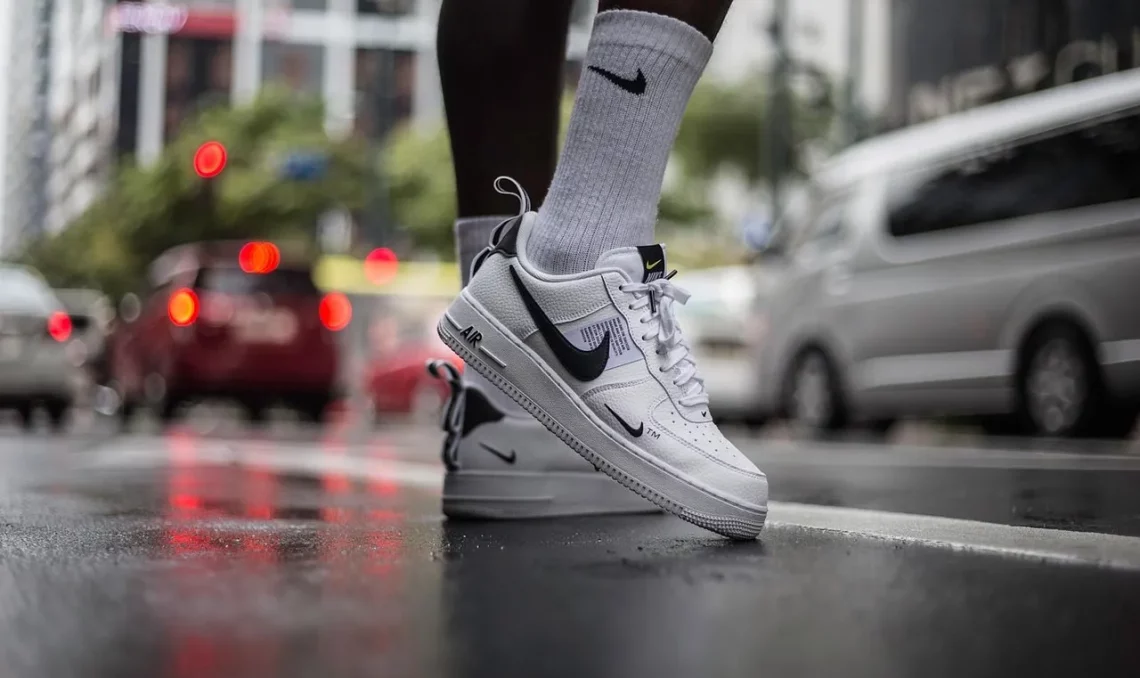
The Rise of Vegan Sneakers: Style Meets Sustainability in Footwear
The fashion industry is undergoing a significant transformation, with sustainability becoming a core focus for both consumers and brands. As environmental concerns rise and ethical considerations gain importance, the quest for alternatives to traditional materials has led to innovative developments in various sectors, including footwear. Among these innovations, vegan sneakers have emerged as a popular choice, appealing to eco-conscious consumers who prioritize sustainability without compromising on style.
Vegan sneakers are crafted from materials that do not involve animal products, making them a cruelty-free option for those who wish to avoid leather, suede, or other materials derived from animals. This new trend represents a broader shift towards responsible consumption, where consumers are increasingly aware of the environmental impact of their purchases. The rise of these shoes is not just a fleeting trend; it is a reflection of changing values and attitudes within society.
The combination of style and sustainability in vegan sneakers reflects a growing demand for products that align with ethical beliefs. As more brands pivot towards vegan and sustainable practices, consumers find themselves presented with a plethora of stylish options that meet their fashion needs while also supporting a more sustainable future. This exciting intersection of fashion and ethics is reshaping the landscape of footwear, making it more inclusive and environmentally friendly.
The Materials Behind Vegan Sneakers
The foundation of vegan sneakers lies in the innovative materials used to create them. Unlike traditional sneakers that rely heavily on leather and other animal-derived components, vegan sneakers utilize a variety of synthetic and plant-based materials, which offer both functionality and style.
One of the most common materials found in vegan sneakers is synthetic leather, often made from polyurethane (PU) or thermoplastic polyurethane (TPU). These materials are designed to mimic the look and feel of real leather while being free from animal byproducts. Synthetic leather is not only versatile but also easier to clean and maintain, making it an attractive option for everyday wear.
In addition to synthetic materials, many brands are now incorporating eco-friendly alternatives like organic cotton, hemp, and recycled plastics into their designs. Organic cotton is grown without the use of harmful pesticides and fertilizers, reducing its environmental impact. Hemp, known for its durability and low resource requirements, is an ideal choice for sustainable footwear. Furthermore, recycled plastics, which are repurposed from discarded materials, contribute to reducing waste and promoting a circular economy.
Another exciting development in the world of vegan sneakers is the use of innovative materials derived from plants. For example, some brands are experimenting with materials made from pineapple leaves, apple peels, and even mushrooms. These bio-based materials not only provide a unique aesthetic but also align with the values of sustainability and environmental stewardship.
As consumers become more conscious of their choices, the demand for transparency in the production process has also increased. Many vegan sneaker brands are committed to ethical labor practices, ensuring that their supply chains are free from exploitation and unfair treatment. This commitment to ethical sourcing and sustainable materials is essential in building trust with consumers who prioritize not only the product but also the story behind it.
Fashion Versatility of Vegan Sneakers
Vegan sneakers are not just a sustainable choice; they are also incredibly versatile and stylish, making them suitable for various occasions. The modern consumer seeks footwear that can seamlessly transition from casual outings to more formal settings, and vegan sneakers deliver on this front.
One of the key advantages of vegan sneakers is their ability to adapt to different fashion styles. With a wide range of designs, colors, and finishes available, there is a vegan sneaker to complement any outfit. Whether it’s a classic white sneaker for a minimalist look, a bold patterned option for a statement ensemble, or a sleek black design for a night out, the options are limitless.
Moreover, vegan sneaker brands often collaborate with designers and influencers to create limited-edition collections that push the boundaries of fashion. These collaborations not only introduce fresh aesthetics but also highlight the potential of vegan materials in high-fashion contexts. As a result, vegan sneakers are increasingly featured in fashion shows, editorial spreads, and celebrity wardrobes, further solidifying their place in the fashion landscape.
In addition to their aesthetic appeal, vegan sneakers also prioritize comfort and functionality. Many brands incorporate advanced technologies such as cushioned insoles, breathable fabrics, and lightweight constructions, ensuring that wearers can enjoy both style and comfort. This focus on performance has made vegan sneakers a popular choice for athletes and active individuals, blurring the lines between casual and athletic footwear.
As the fashion industry continues to evolve, the versatility of vegan sneakers positions them as a staple in the wardrobes of conscious consumers. They provide an opportunity for individuals to express their style while making a positive impact on the environment. By choosing vegan sneakers, consumers are not only investing in a fashionable piece of footwear but also contributing to a larger movement towards sustainability.
The Future of Sustainable Footwear
The rise of vegan sneakers marks a significant turning point in the footwear industry, but it also raises questions about the future of sustainable fashion as a whole. As consumer awareness and demand for ethical products grow, it is essential for brands to innovate continuously and address the environmental challenges associated with footwear production.
One of the critical areas for improvement is the lifecycle of footwear. While many vegan sneakers are produced using sustainable materials, the overall impact of production processes, packaging, and transportation must also be considered. Brands are increasingly exploring options such as biodegradable materials, zero-waste production techniques, and eco-friendly packaging to minimize their carbon footprint.
Moreover, the concept of circular fashion is gaining traction, urging brands to implement take-back programs or recycling initiatives. By encouraging consumers to return their old shoes for recycling or repurposing, brands can contribute to reducing landfill waste and promoting a more sustainable approach to fashion consumption.
Consumer education plays a vital role in the future of sustainable footwear as well. As consumers become more informed about the environmental and ethical implications of their choices, they are empowered to make decisions that align with their values. Brands that prioritize transparency in their practices and communicate their sustainability efforts effectively will likely gain a loyal following in this conscious consumer landscape.
Additionally, collaboration across industries can lead to innovative solutions for sustainable footwear. Partnerships between fashion brands, material scientists, and environmental organizations can drive research and development in new materials and production methods. This collaborative approach can pave the way for breakthroughs that redefine what it means to create sustainable and stylish footwear.
In conclusion, the rise of vegan sneakers represents a significant shift in the footwear industry towards greater sustainability and ethical practices. With innovative materials, versatile designs, and a growing commitment to responsible production, vegan sneakers are not just a trend; they are part of a broader movement towards a more sustainable future in fashion. As consumers continue to prioritize style and sustainability, the evolution of vegan sneakers will undoubtedly play a crucial role in shaping the future of footwear.




